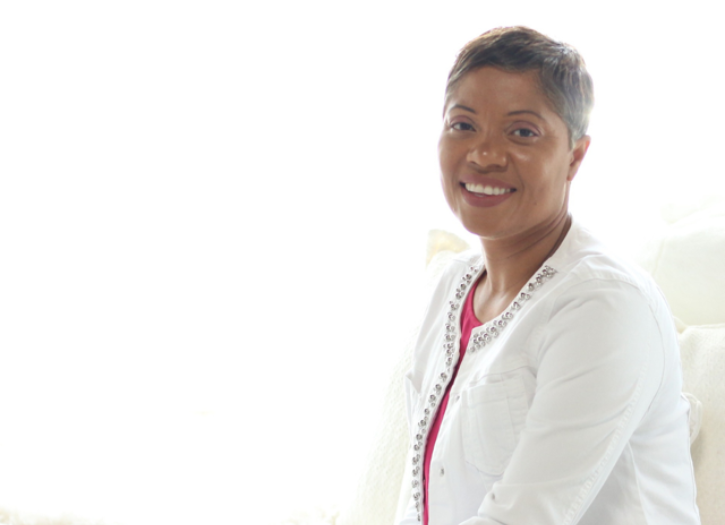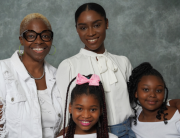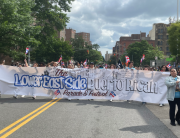Canadian psychotherapist Dr. Joan Samuels-Dennis, Ph.D., is an award-winning speaker and authority on trauma recovery, reconciliation, and forgiveness. Joan has specialized in promoting the mental health and well-being of individuals, families, and communities for over a decade through her groundbreaking trauma recovery strategy, The Forgiveness Method.
What motivates you daily?
Daily I am motivated by thoughts of true peace. It was Abraham Lincoln who said, “Every individual need 3 things: 1) freedom from the thing that enslaves them; 2) access to the resources that allow them to thrive, not just survive; and 3) to know with certainty that they have done better than the generation before.”
Why is forgiveness important?
True healing requires that we speak the truth of course, but it is forgiveness that allows us to look into the mirror and smash it. The mirror will show us the harm that was done to us and the thoughts and beliefs we adopted during those harmful moments that now subconsciously establish a pattern of self-harm. Forgiveness, whether done at the individual level (i.e. forgiveness of father or mother) or at the national level (i.e. forgiveness of Europeans) teaches us seven significant lessons about the beliefs we hold that perpetuate internal peace or war. As a people, we must seek peace within ourselves and our community. This is the greatest resource necessary for us to thrive as individuals, families, communities, countries, and nations.
What would you say to someone looking to start the healing process?
Forgiveness is not easy. It requires a commitment to continually shift the focus inward. It requires the capacity to say, “I accept the past and I give up the argument that it must change.” It requires a commitment to finding all the ways in which we betray ourselves and that, takes real guts.
What do you hope our readers gain from this interview?
It is my hope that in 2023 we will see people of African descent choose to begin their healing Journey like never before. For anyone just starting the journey I have a few tips for them.
- Surround yourself with 3 people as you move through your healing Journey. A wise mentor/sponsor who has the wisdom of an elder and is years ahead of you. A good coach with the knowledge to help you understand the game you play, its rules, your position and how to level the playing field. A good therapist who can move you through a therapeutic process that empowers you and helps you to answer the question “Who Am I?”
- Begin your healing Journey with someone trained in trauma recovery. Address your deepest wounds first, not last.
- Use a variety of journaling techniques as you move through the process to help you reflect on the biggest insights that come as you heal.
- At every phase of the journey examine how your beliefs bring you to the place of re-experiencing traumatic events and realign your beliefs and assumptions so that the addiction to victimhood ends.
- Trust your gut (your center of truth), not your heart (your center of feeling). Learn to listen to yourself. Learn to know when you are lying to yourself.
What are you looking forward to most in 2023?
One of the things I am most excited about as we approach 2023 is the launch of our 18-month trauma recovery certificate program. We’re creating a certificate that at one level will support anyone with moving through their trauma recovery journey. But we also want to attract the elders and the healers of the black community to our program. We want to serve our own community with practice structures and theories that recognize that the past 462 years have been a traumatic encounter. I believe it’s time we care for ourselves so The Village will play a part in preparing qualified practitioners who can support our varied cultural communities (indigenous blacks living in North and South America, the Caribbean, and Africa) with the highest standard of trauma recovery care.
Photo Credits: Dr. Joan Samuels-Dennis







Add Comment
You must be logged in to post a comment.